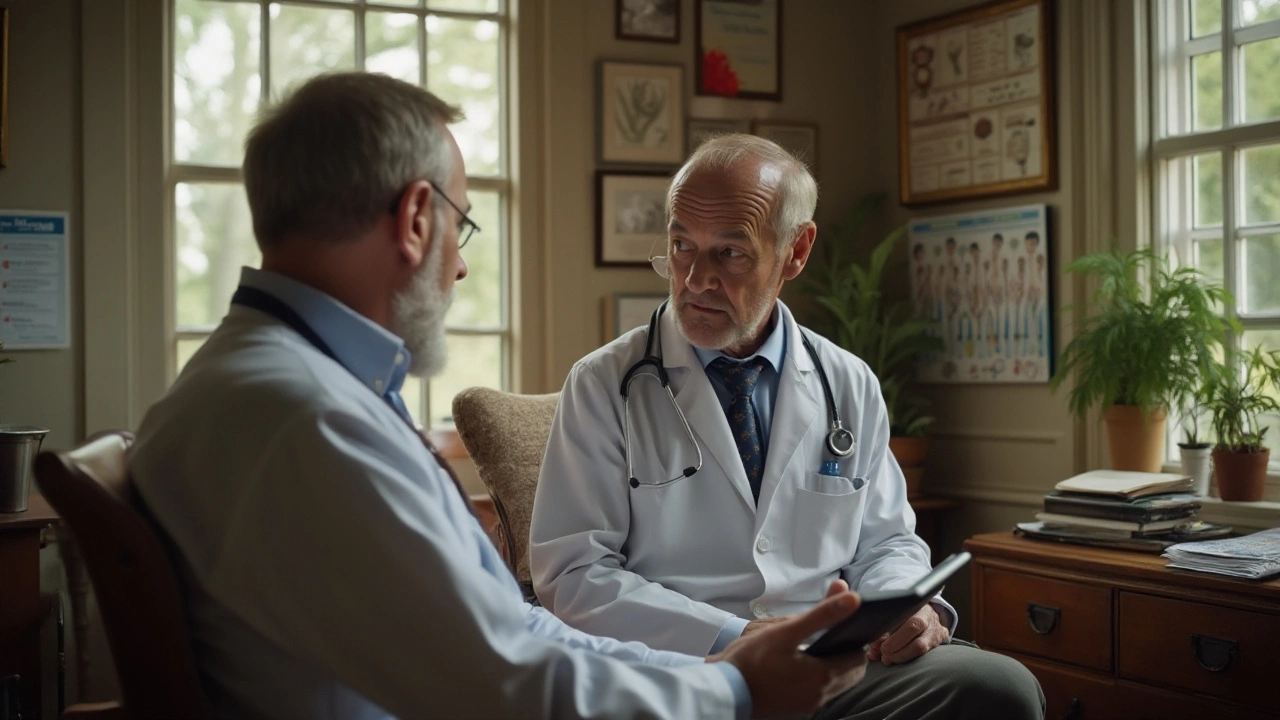If you’ve ever struggled with getting or keeping an erection, you’re not alone. Erectile dysfunction (ED) affects millions of men worldwide, and most cases have a clear reason behind them. Knowing the cause is the first step toward fixing it, so let’s break down the common triggers and what you can do right now.
Age plays a role, but it isn’t the only factor. Poor blood flow from high blood pressure or cholesterol, diabetes, and heart disease all make it harder for blood to reach the penis. Stress, anxiety, and relationship issues can also shut down the signal from your brain. Certain meds – especially some antidepressants and blood‑pressure pills – have side effects that include ED. Lifestyle habits matter too: smoking, heavy drinking, and lack of exercise can damage vessels and nerves needed for an erection.
The good news is there are many ways to get things back on track. Start with the basics: quit smoking, cut down alcohol, and aim for at least 30 minutes of moderate exercise most days. Those habits improve circulation and boost confidence.
If lifestyle tweaks aren’t enough, prescription meds like sildenafil (Viagra), tadalafil (Cialis) or vardenafil work for many men by enhancing blood flow when you’re sexually aroused. You’ll need a doctor’s script, but the process is usually quick and safe when you follow dosage instructions.
For those who can’t tolerate pills, there are alternatives such as penile vacuum devices, injection therapy, or urethral suppositories. These options sound intimidating, but most men find them effective after a short learning curve.
Natural remedies also get attention. L‑arginine, an amino acid, may help some men by supporting nitric oxide production, which widens blood vessels. Herbal extracts like ginseng or yohimbine have mixed results – they can work for a few but aren’t a replacement for proven treatments.
Don’t forget the mental side of ED. Talking openly with your partner reduces pressure and anxiety. If stress or depression is a big factor, consider counseling or therapy. A therapist can teach coping skills that improve both mood and sexual performance.
Finally, keep regular check‑ups. Your doctor can spot underlying health problems early – like diabetes or heart disease – and treat them before they worsen your ED. Blood tests, blood pressure checks, and a quick review of your meds are all part of the routine.
Bottom line: erectile dysfunction is usually fixable. Start with healthier habits, talk to a healthcare professional about medication options, and don’t ignore the emotional side. With the right mix of lifestyle changes, medical help, and open communication, you can get back on track and enjoy a satisfying sex life again.

Exploring the realm of erectile dysfunction treatments, this article sheds light on five notable alternatives to Cialis. Through a detailed analysis of Sildenafil, Stendra, Levitra, Alprostadil, and generic Tadalafil, readers can learn about their distinct features, benefits, and drawbacks. This information aids individuals in making informed choices regarding which treatment might best suit their needs for effective and satisfactory results.
I recently discovered the incredible healing properties of Hedge-Hyssop, and I can't wait to share this new go-to dietary supplement with you all! Not only does this powerful herb support digestion and ease stomach issues, but it also helps to reduce inflammation and alleviate pain. As a natural remedy, Hedge-Hyssop has been proven to be safe and effective. I've personally experienced its benefits and highly recommend giving it a try. Incorporating Hedge-Hyssop into your daily routine could be the perfect addition to support your overall health and well-being.
Discover how Linagliptin fits into diabetes support groups, compare group types, and find practical tips to choose the best community for managing type 2 diabetes.
Generic medications save money but may contain different inactive ingredients that can trigger reactions in sensitive individuals. Learn what's really in your pills and how to protect yourself.
Seizure medications can affect fetal development and interact with birth control. Learn which drugs carry the highest birth defect risks, which are safest during pregnancy, and how drug interactions can impact both seizure control and contraception effectiveness.
Cutaneous lupus causes skin rashes triggered by UV light. Learn how sunlight activates immune responses, what protective measures actually work, and the latest treatments to prevent flares and protect your skin.